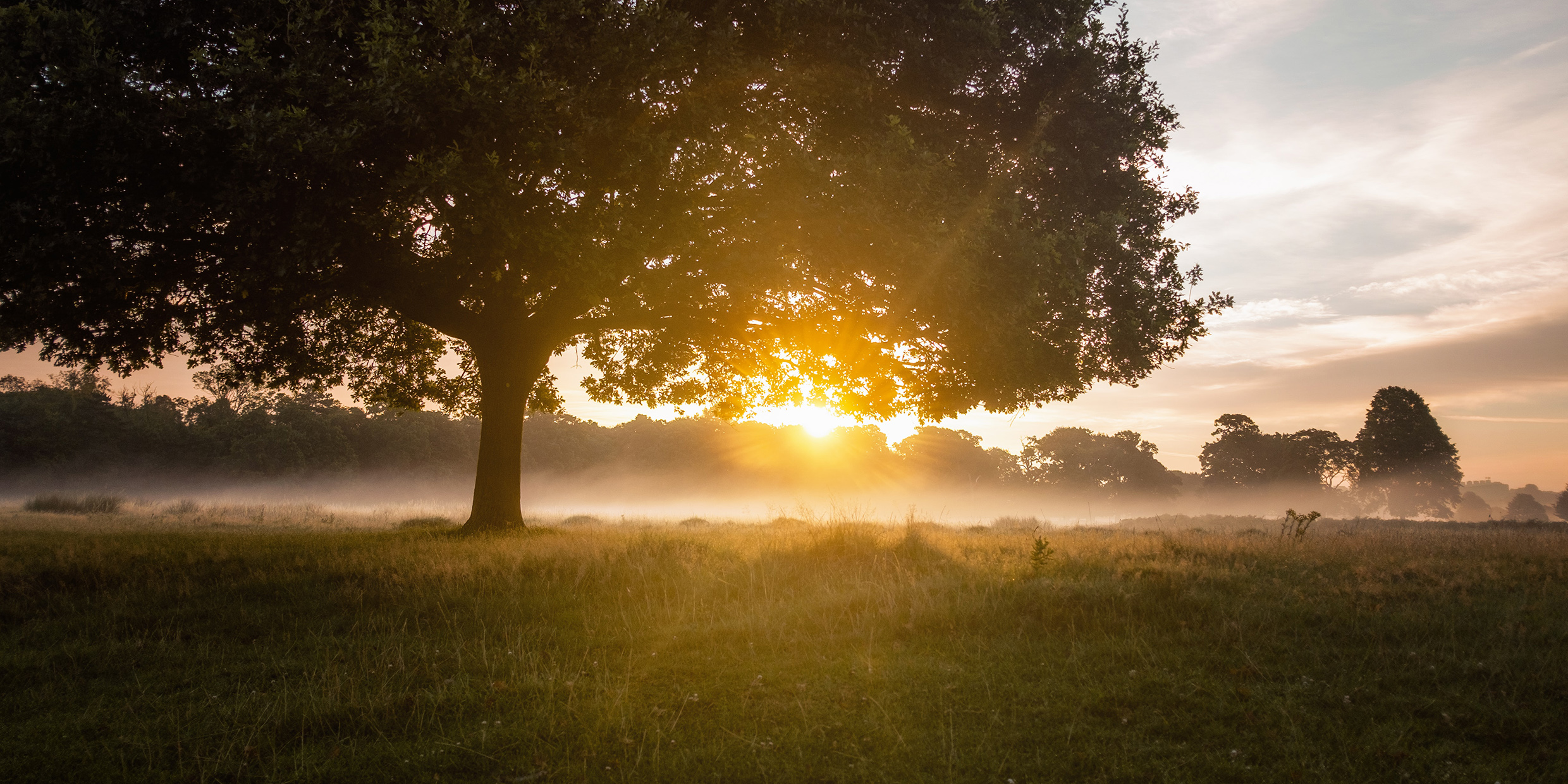Originally published 24 September 2002
Returning to the States from a summer in Ireland, I’m jet-lagged for several weeks. I wake up at 4 a.m. no matter how late I try to stay awake at night. There’s nothing to be done but get up, shower, dress, toss my laptop into my backpack, and walk to work.
I wouldn’t be out of bed at such an ungodly hour if my body clock were not awry, but once I’m up I count myself lucky. My walk takes me through woods and meadows in the care of my town’s Natural Resources Trust and, for a few jet-lagged weeks in early September, I have those twilight acres all to myself.
Did I say ungodly? Surely there is no more godly hour than the dawn. Mist pools in the hollows of the meadow. The water in the brook slips under the bridge with a dreamlike languor. The stillness of fading night is broken by the tip-tip-tip of a nuthatch; in an hour, the roar of the nearby highway will obliterate natural sounds.
This is the hour when the mushrooms shoulder up in shadows, flexing their caps in the early light. From the top of a distant pine, a red-tailed hawk assumes its morning patrol. As I leave the woods and step into the meadow, there is always the possibility that I’ll see a grazing deer or two; they bound into the underbrush at my approach, white tails flashing.
The world holds its breath.
A waning crescent moon joins Jupiter in the eastern sky, its “unlit” side made visible by a faint glow of Earthshine. A day later, the moon will be only two days from new, and eyelash thin. A thinner moon is almost impossible to see.
At dawn, the atmosphere empties out its bag of optical tricks — reflection, refraction, scattering — to great effect, spilling sunlight over the horizon, parceling out components of the sun’s white light in pale washes of color. The reeds along the pond and the trees at the back of the meadow are daubed like stage sets, eerie tints of rose and violet that are exquisitely sensitive to the quantity and kind of water vapor and pollution in the air.
A dozen twilight effects of air and light are listed by Fred Schaaf in his useful book, Seeing the Sky. Belgian astronomer Marcel Minnaert piles on more things to see at dawn in his teeming compendium, Light and Color in the Outdoors. These books make me realize that I go through life half-blind, with tricks of radiance occurring all about me. The auroral hour is prime time.
There is no optical phenomenon visible at dawn that cannot also be seen at sunset, but our eyes are more completely rested in the morning, and adapted to darkness, and so we are more sensitive to tints and hues.
There is also something else — a psychological sense of waking up in a technicolor Oz. We see things with the wide eyes of morning that we’d be oblivious to at the end of day. The tiny white moth, for example, perched on a blade of grass, spreading its wings to the east in anticipation of the rising sun.
As the sky slowly brightens, it’s fun to see how long it is possible to observe stars and planets. This fall, Jupiter and Sirius rise together, like twins, north and south of east, three hours before the sun. If you know where to look, they can be detected in the twilight almost till the moment of sunrise. They will be there, of course, all day long, hidden behind the screen of day.
At last the sun breaks the horizon and pours its molten gold through the trees, across the meadow, and down along the path. Suddenly the sky is daytime blue, the leaves and grass are daytime green, and the world of human commerce wakes up with a bang. As I approach the campus, early-rising joggers come loping along the highway, earplugs connected to sound machines at their waist. A ROTC platoon thunders by, its voices and steps in cadence.
“Only that day dawns to which we are awake,” wrote Thoreau at the end of Walden. His message is simple: If we want to live absolutely, we need to place ourselves in circumstances where we are likely to encounter the Absolute. For a few weeks each autumn, jet lag helps me find that place.
But the bed is cozy and the flesh is weak. Each morning I linger a little longer between the sheets.
Now, three weeks after getting home from Ireland, my body clock is again running at local time and I’m sleeping through the dawn. “We are sound asleep nearly half our time,” Thoreau wrote. He meant it both literally and figuratively.



